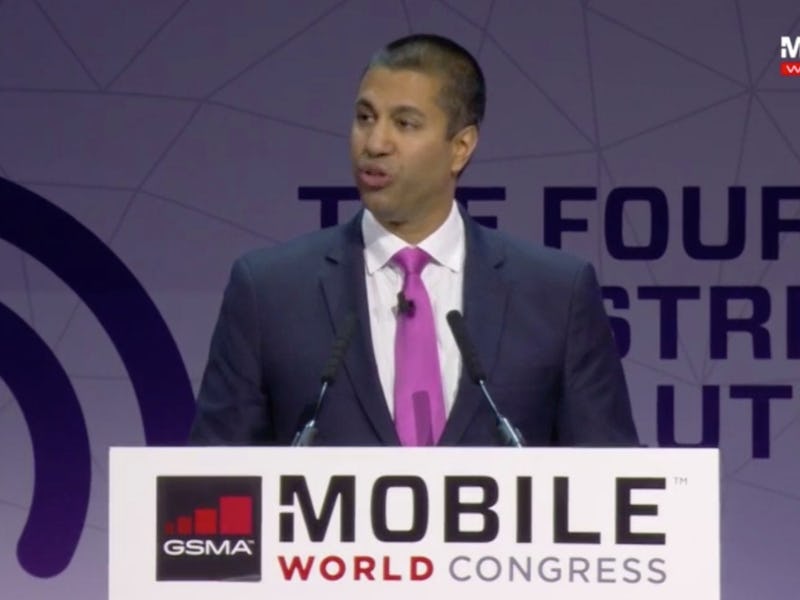New FCC Chair: We Will Develop 5G With a 'Light Touch'
Ajit Pai criticized his predecessor's approach to net neutrality.

The death knell sounded for net neutrality on Tuesday, as the new head of the United States’ Federal Communications Commission (FCC) declared a new era of light touch regulation that he believes will usher in a new era of 5G and faster internet speeds. Ajit Pai promised a “practical, not ideological” approach to the industry in a speech that criticized overzealous rulings for holding back innovation.
“The torch at the FCC has been passed to a new generation, dedicated to renewal as well as change,” Pai told attendees at Barcelona’s Mobile World Congress.
It’s been a busy five weeks for Pai, who was named as one of Donald Trump’s first appointments after Trump assumed the presidency. Pai spent the five years prior to this as a commissioner on the FCC, pushing back against previous chairman Tom Wheeler’s heavier regulations. His ascendancy to the chairmanship comes at a time when debate rages on about cellular infrastructure expansion, and whether Wheeler’s decision to enforce net neutrality two years ago was a good idea. In four years’ time, there’s expected to be over 260 million smartphone users in the country, and this, coupled the dawn of self-driving cars, means that 5G network deployment is crucial.
“Two years later, it is evident the FCC made a mistake,” Pai said. He pointed to figures that showed the country experienced its first-ever decline in broadband investment in the wake of net neutrality, and claimed that infrastructure spending remains lower than it did in 2015.
In his speech, Pai criticized the way the FCC had previously treated the internet like rail and water infrastructure, describing it as “1930s utilities regulations…deployed into the 21st century.” He pointed to zero-rating data plans, where consumers get free access to certain sites and services. Critics argue that this is anti-competitive as it pushes consumers toward certain services, but Pai said that blocking such plans goes against what consumers really want.
“The truth is, consumers like getting something for free,” Pai said.
Cars like the Tesla Model S already use cellular connectivity, but self-driving cars will increase demand for on-the-go connections.
Carriers are currently researching 5G deployment, which would massively increase download speeds and pave the way for self-driving cars that can share collision data wirelessly. Calling for light-touch, rather than zero regulation, Pai said that the FCC will do more to incentivize sectors to build competitive networks while removing the barriers to innovation. The FCC will focus on targeted action to address problems, rather than preemptive rules that could stifle progress.
“This vision will unleash the massive investments that will help the United States realize this 5G future,” Pai said.